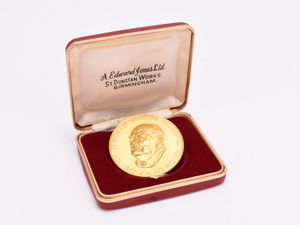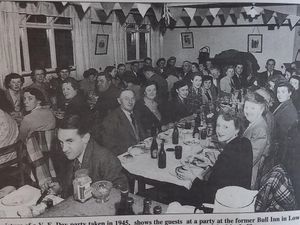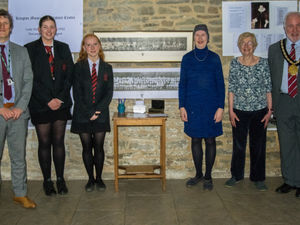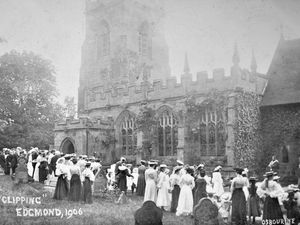Flashback to 1990 and when Shropshire was shaken by Britain's biggest earthquake for 100 years
Earthquakes are probably one of the most fearsome weapons in nature's armoury.
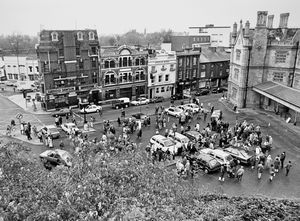
And back in March 1990, Shropshire experienced one of the biggest to shake Britain for 100 years.
Centred between Knighton and Newtown, along the River Teme, experts originally estimated it at 6.3 on the Richter Scale but later reduced it to 5.2.
This was the same level as the last quake to strike Shropshire in July, 1984 - only three months after an earlier tremor measured 3.4 on the Richter Scale.
The centre of the 1984 quake was off the Welsh seaside resort of Portmadoc and as far as Shropshire was concerned, while buildings were rocked, there were few reports of structural damage.
But the effects of the 1990 tremors were far more serious and far more widespread.
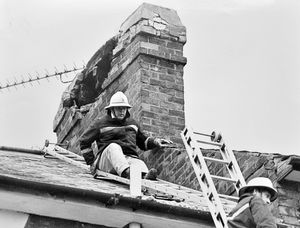
The whole of the county was affected, Shrewsbury particularly seriously. Entire buildings shook, sending masonry tumbling into the streets, and part of the town was sealed off.
Many public buildings were evacuated, either at the time or amid warnings of after-shocks later.
Emergency services were deluged with phone calls from worried members of the public and also had to respond to automatic fire and burglar alarms which were triggered by the shock.
The main tremor, at around 2.30pm, lasted for at least five seconds.
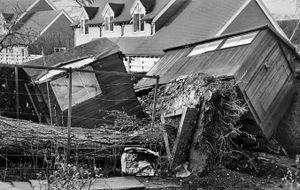
Dr Peter Styles of Liverpool University's Department of Earth Sciences said it was indicative of an earthquake of "significant size.''
It was felt from London to Lancashire and across most of Wales.
Dr Malcolm Howells, of the British Geological Survey, said the quake had covered a similar area to one six years ago which had reached 5 on the Richter Scale. His own office in Aberystwyth had been shaking, he said.
Scientists originally pinpointed the focal point of the tremor as Nottingham but it was later confirmed to be somewhere between Knighton and Newtown.
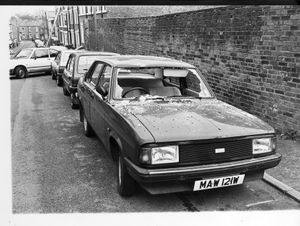
Miss Ann Montgomery, adminstrator of the university's geology department, said: "It could have been an explosion or an earth tremor. We are studying our seismograph at the moment and trying to contact the British Geological Survey at Keyworth in Nottingham for confirmation.''
Two streets in Shrewsbury were closed, one because of a gas leak and the other because of falling tiles and slates.
A chimney stack at the town's historic railway station, built in 1848, also lost one of its chimneys.
Thousands of frightened shoppers and office workers some of them in tears spilled out on to the streets.
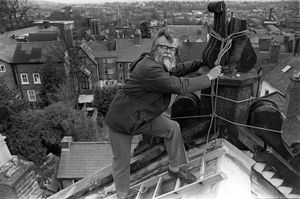
Police cordoned off most of the town centre, even directing cars down pedestrianised Pride Hill in the fear that vibration could bring down masonry from already weakened buildings.
And they called in 6ft 7in town crier Martin Wood, who used his massive voice to warn of dangers and give advice on public transport.
Experts from West Midlands Gas scoured the town with sophisticated equipment, checking for leaks, while hundreds of people had brief power cuts.
One of the worst incidents was when a chimney collapsed on a riverside, three-storey house in Victoria Street, Castlefields, the home of 83-year-old Mrs Bessie Roberts.
Her chimney fell on to the roof of the house next door and smashed the windscreen of a Marina car in the street outside.
Mrs Roberts, a widowed great grandmother, said: "I was sitting by my fire, reading the paper, when I heard this terrible noise. The television shook, debris fell down the fireplace and I was so frightened I couldn't speak.''
At Dogpole in the town centre, another chimney was dislodged at the offices of estate agents Davies, Brown and Jennings.
The chimney, which is about 100 years-old, came away from the side of a building and leaned precariously over the main, timber-framed part of the office, dating back to 1600.
Davies, Brown and Jennings partner, Mr John Butler, said: "The tremor felt like a great lorry was going down the road outside and shaking everything to bits.''
Another chimney and roof tiles crashed into the street in Butcher's Row, the debris smashing the rear window of a Ford Escort parked below.
The big new Charles Darwin Shopping Centre was evacuated soon after the tremor shook plaster from the walls and sent displays flying. Shoppers fled into thestreet, with several women in tears.
Mandy Harte, of the Laura Ashley store, said: "I really thought the floor was going to split. ``The whole building rocked and we had to keep our balance like being on a train.''
Miss Helen Mumford, serving on the flower stall on the top floor, said the centre fell silent for a couple of moments before everyone rushed out.
Staff at the Great American Drug Store first cleared the shop's creche before leaving the centre. ``The displays fell over and stuff fell off the shelves as the building began to shake,'' said assistant Miss Jane Stokes.
Town crier Mr Wood, who was in the Music Hall when the tremor hit, said: "I looked out of the windows and could see thefancy parapets on the top of the old market hall swaying.''
Another problem area was at Shoplatch where ageing facades of the row of buildings including the Royal Indian Tandoori Restaurant and the National and Provincial Building Society were feared unsafe.
Shrewsbury Railway Station was evacuated for an hour, with train services delayed as a result.

